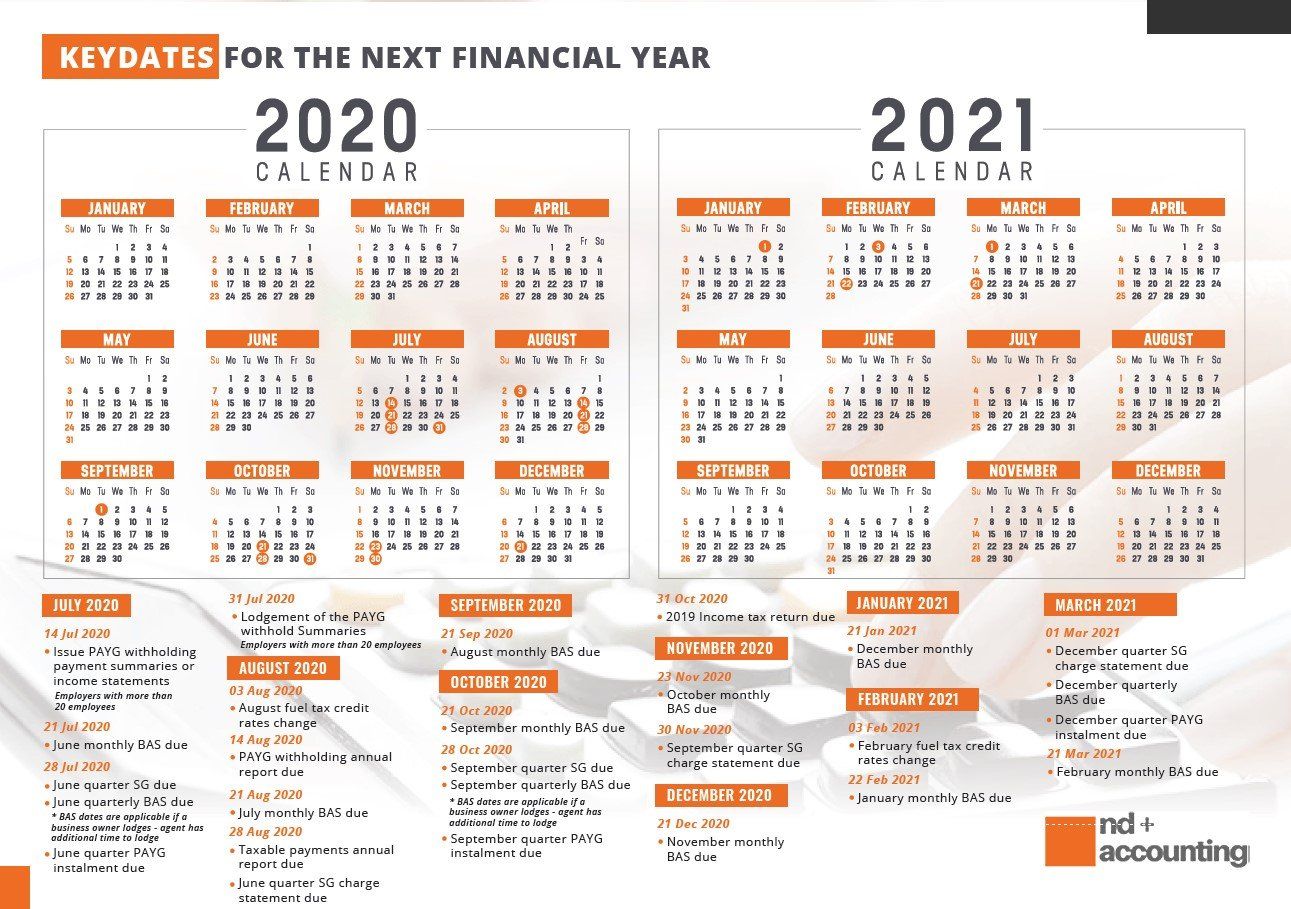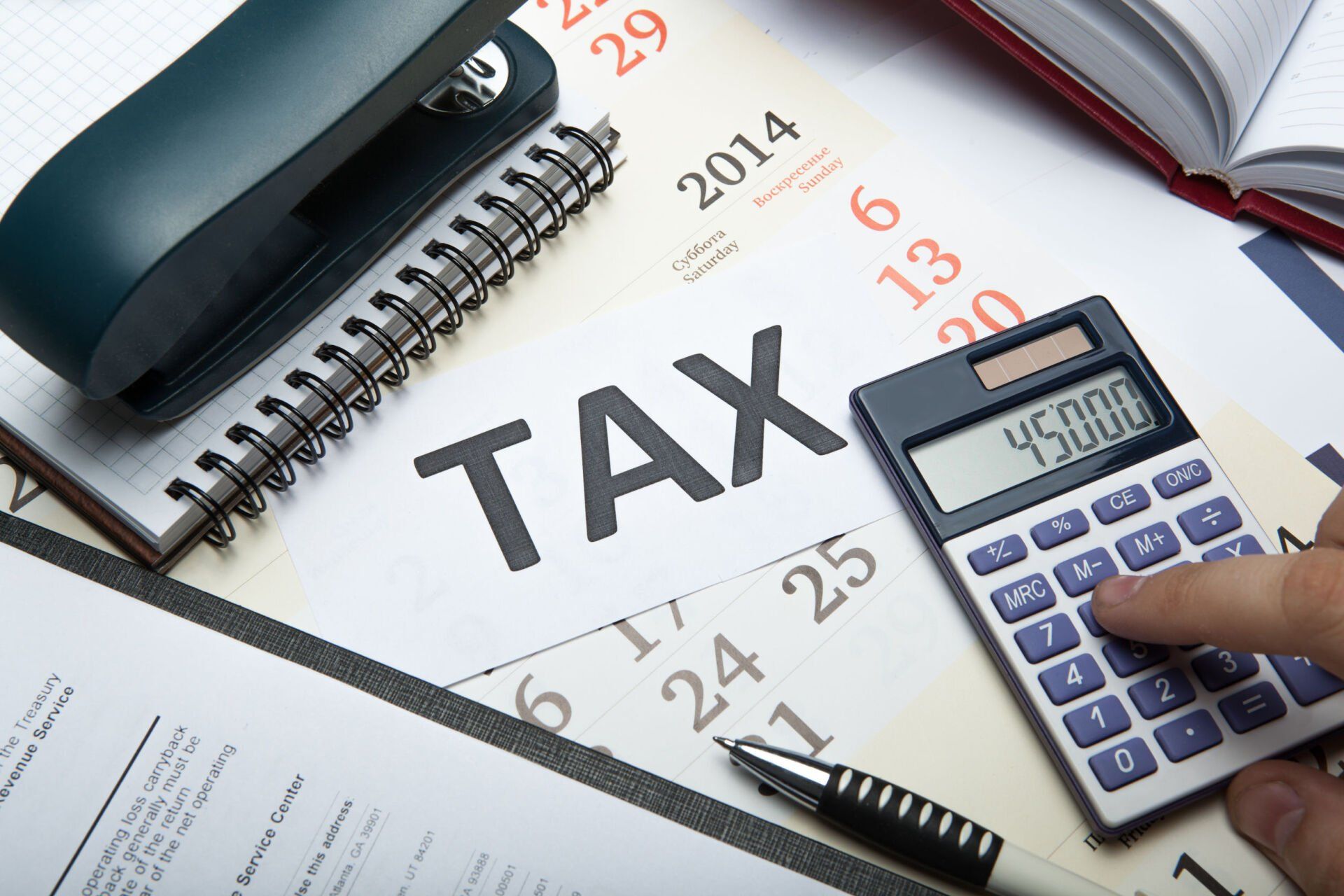Key Dates for your Business July 2020 - June 2021

Understanding taxation is important when you’re running a business. There are usually a number of different taxes your business needs to pay and a range of obligations you’re required to meet.
Below are key dates as a downloadable that can be printed and kept as a reference to assist including dates relating to Activity Statements, superannuation, and more as well as a summary of the different obligations.

Tax reporting requirements explained
Business Activity Statements (BAS)
Business owners who are registered for GST must lodge a BAS.
BAS is used to report and pay goods and services tax (GST), pay as you go (PAYG) instalments, PAYG withholding tax and other tax obligations.
The frequency in which you must lodge a BAS depends upon one single factor — GST turnover. Here’s how it breaks down:
- Quarterly – GST turnover is less than $20 million (and the ATO hasn’t told you that you have to report monthly)
- Monthly – GST turnover is $20 million or more
- Annually – You voluntarily registered for GST, and your GST turnover is less than $75,000 (or $150,000 for non-profits)
Most businesses lodge quarterly, the dates are as follows:
- July, August and September – 28 October
- October, November and December – 28 February
- January February and March – 28 April
- April, May and June – 28 July
If your organisation reports and pays monthly, its activity statement and payment is due on the 21st day of the following month. For example, a July monthly activity statement is due on 21 August.
Pay As You Go (PAYG)
When you make payments to employees, certain contractors and other businesses, you need to withhold an amount from the payment and send it to the Australian Taxation Office (ATO). This is called PAYG withholding, and works to prevent workers from having a large amount of tax to pay at the end of the financial year.
You report and pay your pay as you go (PAYG) instalments through your activity statement or instalment notice.
At the end of each financial year, you need to give each of your payees (i.e. your employees and anyone else you’ve withheld payment from) a payment summary. You must also provide an annual report to the ATO.
Superannuation Guarantee (SG)
The Superannuation Guarantee – or SG for short – is the contribution you pay an employee into a super fund on their behalf.
Due dates are as follows:
- 1 July – 30 September 28 October
- 1 October – 31 December 28 January
- 1 January – 31 March 28 April
- 1 April – 30 June 28 July
The current rate for SG payments by your employer is 9.5%, with this rate currently set to continue until 1 July 2021, when it will increase to 10%. Generally eligible employees are over 18 and earn more than $450 per month (before tax).
Engaging with a Registered Tax Agent
A registered tax agent can help you lodge your activity statements and has additional time to lodge on your behalf. If you need a hand to manage your business financial obligations, contact us here.
Recent Posts










